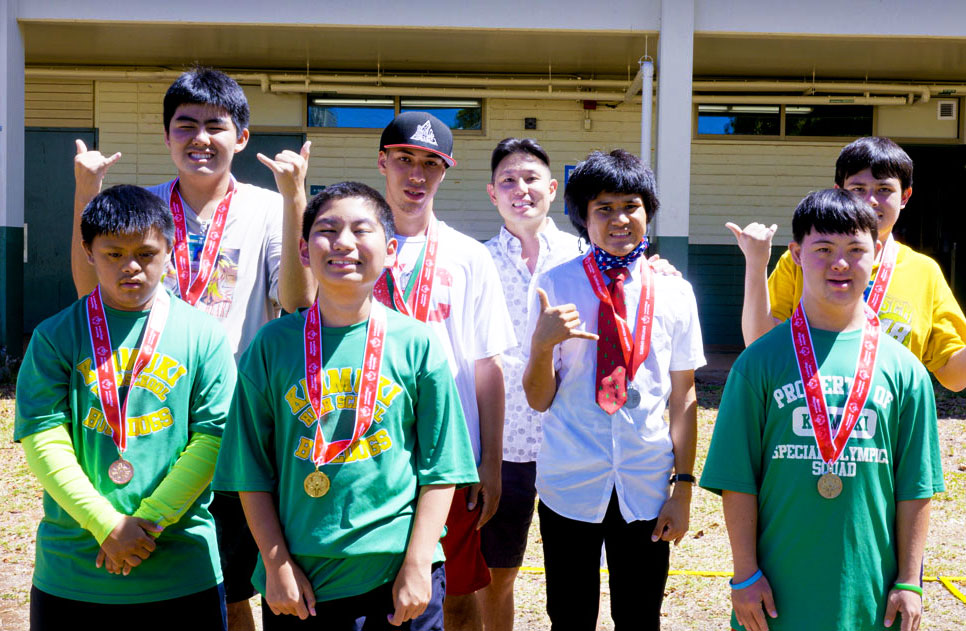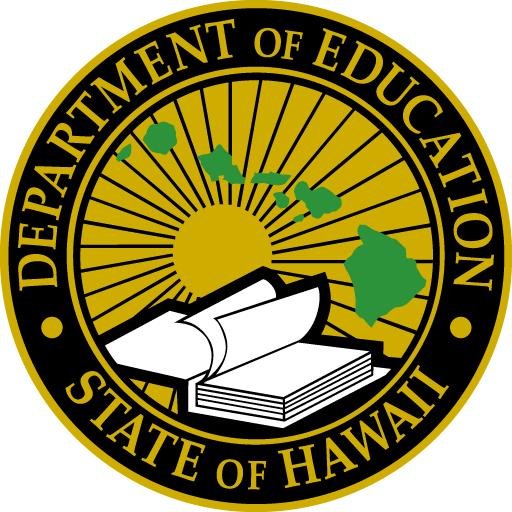The Hawaiʻi State Department of 教育 (HIDOE) provides services to children ages 3 through 21, residing in Hawaiʻi, who are eligible for 特別教育 および関連サービス。 Special education is specially designed instruction, related services, and other supplementary aids to meet your child’s unique needs—at no cost to parent(s).
概要
Special education refers to a range of services provided your child with disabilities to improve their educational outcomes. It is specially designed instruction to meet the unique needs of your child with disabilities. Special education may include, but is not limited to, academic services, speech-language services, psychological services, physical and occupational therapy, counseling services, and parent education. In addition, 特別教育 services are provided at no cost to parent(s). Find out if 特別教育 Is it for your child? (PDF).
Special education services are made available to any student — ages 3 through 21 — who demonstrates a need for specially designed instruction after an eligibility determination. An evaluation will determine the nature and extent of the student’s needs. Evaluations are separate assessments that may include: academic performance, communication skills, general intelligence, health, vision, hearing, social and emotional status, and motor abilities. If your child is eligible for 特別教育, services are provided through an Individualized 教育 Program (IEP).
The federal Individuals with Disabilities 教育 Improvement Act of 2004 (IDEA) and state regulations require the HIDOE to provide a free appropriate public education (FAPE), which includes a continuum of services for your child who is eligible for 特別教育 および関連サービス。
評価と適格性
Special education is intended for students who have disabilities that cause difficulty in learning and need specialized instruction.
Evaluation is defined as the procedures used to determine if your child has a disability and the nature and extent of the need for 特別教育 and related services. This process helps identify learners who are eligible for 特別教育 and related services by determining the presence of a disability and the need for 特別教育 services. There are specific timelines that teams must follow for the evaluation process.
Appropriate referrals for 特別教育 begins after supportive instructional practices have occurred and the student needs far more than the classroom teacher can provide through general education support. For example, a student who has significant academic and/or behavioral challenges and continues to display a lack of progress despite increasing levels of intervention.
Determination of Disability for 特別教育
チームは以下を行う必要があります。
- 評価を実施する
- 3つのテストを完了する
- Consider your child’s educational progress and the interaction between the disability
- Determine the educational impact of that disability
- Decide the need for 特別教育
This important distinction highlights that the disability label alone does not prompt a determination of eligibility for 特別教育. In the context of 特別教育 eligibility, the disability label has no standing without reference to impaired educational progress as a result of the disability.
3つのテスト
Each prong must be met before the team can determine that if your child is eligible for 特別教育.
- 1つ目の要素: 障害 – お子さんに障害はありますか?
- 2つ目のポイント: 悪影響 – Is the disability adversely affecting your child’s involvement and progress in general education?
- 3つ目のポイント: 必要性 – Does your child need 特別教育 and related services due to their disability?
Individualized 教育 プログラム
An Individualized 教育 Program (IEP) is a written statement about the educational program for your child with a disability. It serves as a management tool to ensure that your child receives the needed 特別教育 and related services. It can also serve as an evaluation tool when used to determine the extent of their progress toward accomplishing projected goals.
各 IEP には次の内容が含まれます。
- A statement of your child’s present levels of academic achievement and functional performance
- 短期的な教育目標を含む年間目標の記述
- A statement of the specific 特別教育 and related services to be provided
- The extent that your child will be able to participate in regular educational programs
- サービス開始予定日とサービス期間
- 少なくとも毎年、目標が達成されているかどうかを判断するための適切な客観的基準と評価手順およびスケジュール
Beginning at age 14 (or younger if determined appropriate by the IEP team), the IEP shall include a statement of the transition service needs of your child—under the applicable components of the their IEP—that focuses on their courses of study (such as participation in a vocational educational program).
お子様が 16 歳になったとき (または IEP チームが適切と判断した場合はそれより若いとき) に有効になる最初の IEP より遅くとも、IEP には次の内容を含める必要があります。
- 年齢に応じた移行評価に基づいた、適切に測定可能な高等教育後の目標
- 学生が目標を達成するのを支援するために必要な移行サービス(学習コースを含む)
- お子様の個々のニーズに基づいた年齢相応の移行評価は、適切な測定可能な高等教育後の目標を決定するために使用されます。
- お子様が州法で定められた成人年齢(ハワイ州では18歳)に達する1年前までに、IEPには、IDEAのパートBに基づく権利(ある場合)が生徒に通知され、成人年齢に達した時点でその権利がお子様に引き継がれるという記述を含める必要があります。
次の 参加者はIEP会議に出席する必要があります(PDF):
- A representative of the public agency, other than your child’s teacher, who is qualified to provide, or supervise the provision of, 特別教育
- The child’s teacher
- 両親または法定後見人の一方または両方
- 適切な場合、お子様
- 親または代理店の裁量によるその他の個人
IEPミーティング
IEP 会議は少なくとも年に 1 回開催する必要があります。お子様のニーズと進捗状況に応じて、レビューと修正のための会議をより頻繁に開催する場合があります。
IEP ミーティングは通常、学校によって開始され、実施されますが、お子様の進歩が満足に進んでいないと思われる場合、または現在の IEP に問題があると思われる場合は、保護者が IEP ミーティングを要求することが適切です。

私の子供は障害を持っていますか?
子どもを探す is HIDOE’s process of identifying, locating and evaluating children and youth who have been identified as or are suspected of having a disability and may need 特別教育 and related services. If you suspect your child may have a disability, we are here to help. もっと詳しく知る
